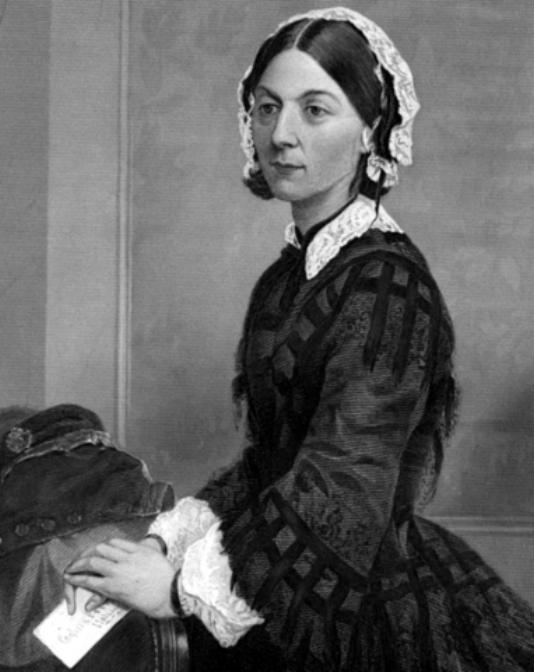 "Reforming Architecture, Defending the Empire: Florence Nightingale and the Pavilion Hospital."
"Reforming Architecture, Defending the Empire: Florence Nightingale and the Pavilion Hospital."
The Journal of Sociology, Special Issue: Un/Healthy Interiors (May 2005).
Florence Nightingale (1820-1910) is best known as an exceptional nineteenth-century woman, whose contribution to history was, above all, to the field of nursing. During the late 1850s, Nightingale rose to public prominence as a nurse working for the British army, while stationed in Turkey. Later, Nightingale used this fame to forward her vision as a hospital reformer and sanitation advocate. During these years, Nightingale's quick ascendancy to iconic status intersected with British imperial interests and idealized femininity, with which she is habitually associated.1 The dovetailing of Nightingale-the-nurse with Nightingale-the-ideal-woman continues to be the engine powering discussions of her life and work, leaving largely untold the manifold nature of Nightingale's impact on the British reform movement in military and civilian hospital architecture, which reverberated throughout the British Empire.
Nightingale's interest in architecture and the hospitals she championed and helped to create were, while remarkable and intelligent, also profoundly imperial in nature. Military hospital architecture was her first concern after her return from Turkey in 1856, and was conceived from the outset as an architecture that would guarantee surveillance, control, and of course, a healthy British army. Even more, the military hospital Nightingale sought to reform was a form of territorial occupation that would, like a hierarchical military camp, represent the imperial order while claiming space for the operation of that order. To highlight Nightingale's work within the scope of architectural history and gender theory is to complicate the lingering image of Nightingale as (only) a "ministering angel," and raises important questions about the relationships between gender, space, imperialism and architecture. My focus in this paper is the work that brought Nightingale into the public eye: her remarkable reform of a makeshift military hospital in Istanbul, Turkey, during the Crimean War (1854-56), and the ensuing hospital model she would defend, against scientific evidence, for the rest of her life.